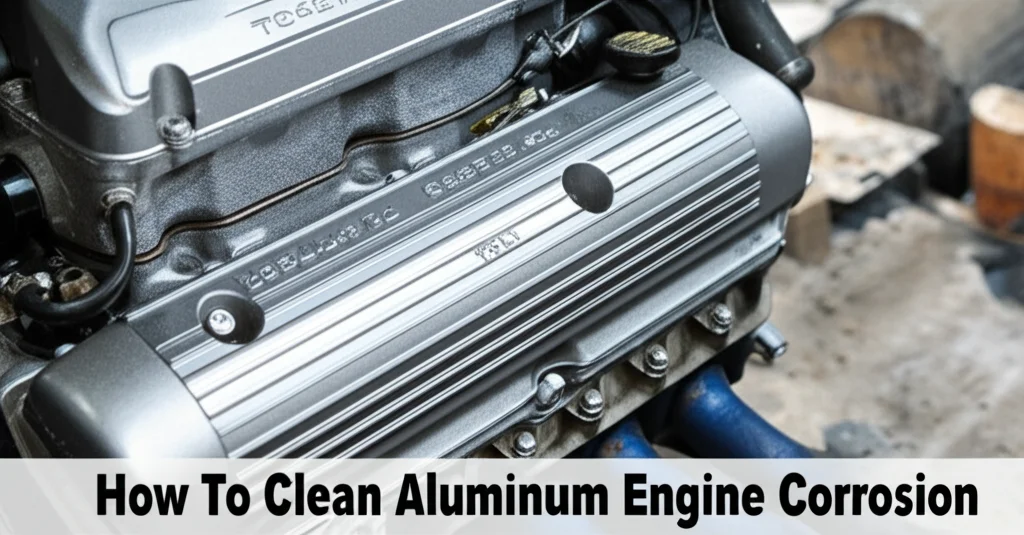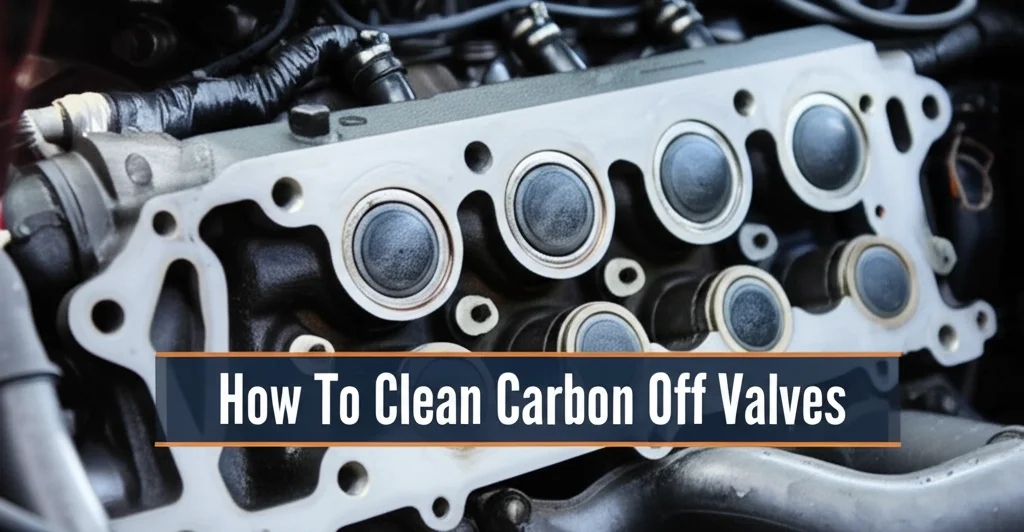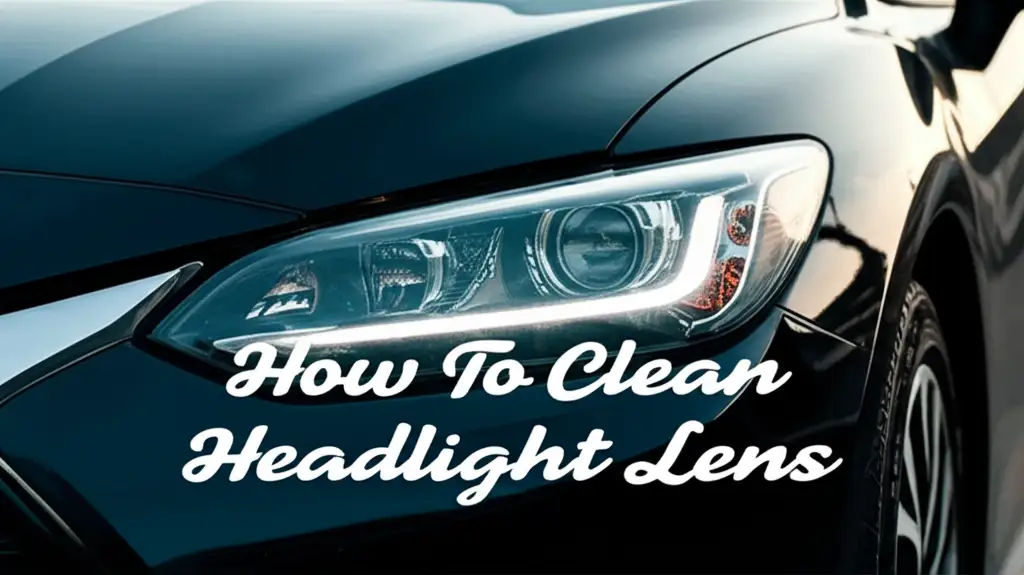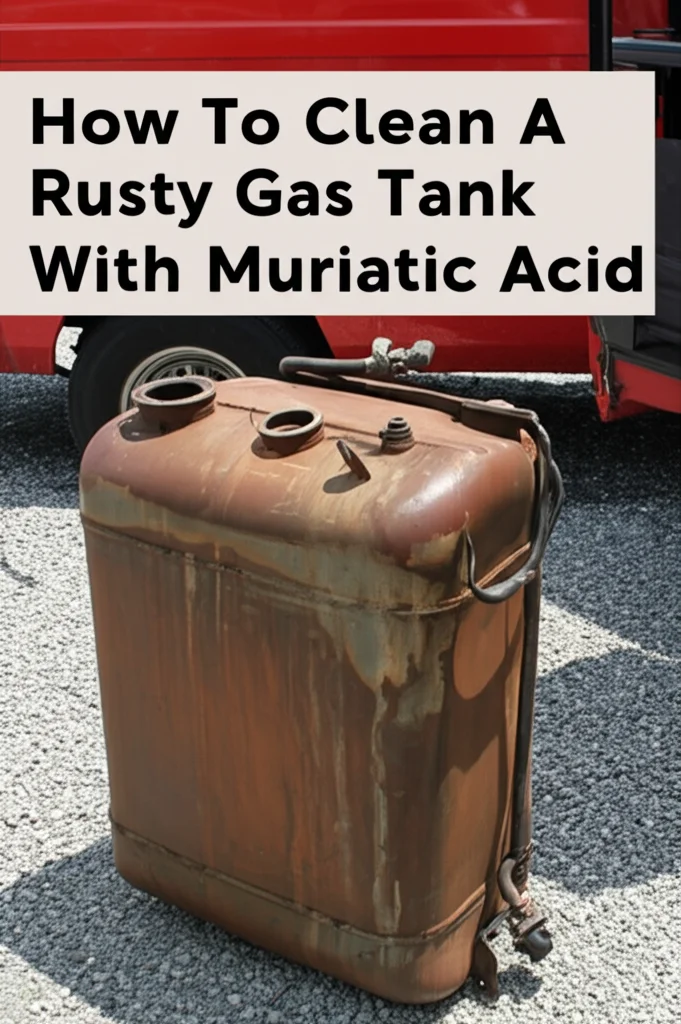· Automotive · 6 min read
How To Clean Aluminum Engine Corrosion

Cleaning Up the Mess: How To Clean Aluminum Engine Corrosion
Have you noticed a white, powdery buildup on your aluminum engine parts? That’s corrosion, and it’s a common problem, especially in older vehicles or engines exposed to harsh conditions. Ignoring aluminum engine corrosion can lead to reduced engine performance and even costly repairs. This article will guide you through the process of cleaning aluminum engine corrosion, restoring your engine’s health and appearance. We’ll cover everything from identifying the type of corrosion to the best cleaning methods and preventative measures. Let’s dive in and get your engine looking and running its best!
Quick Answer: To clean aluminum engine corrosion, start by disconnecting the battery. Then, use a mixture of white vinegar and water, or a dedicated aluminum cleaner, to gently scrub away the corrosion with a soft brush. Rinse thoroughly with water and dry completely before reassembling.
Takeaway:
- Identify the type of corrosion.
- Use gentle cleaning methods to avoid damage.
- Protect the cleaned surfaces to prevent future corrosion.
Understanding Aluminum Engine Corrosion
Aluminum is a fantastic material for engine components because it’s lightweight and conducts heat well. However, it’s susceptible to corrosion when exposed to oxygen and moisture. This corrosion isn’t like the rust you see on steel; it forms a white or grayish powdery substance. Understanding the different types of corrosion is the first step to tackling the problem.
Types of Aluminum Corrosion
There are a few common types of aluminum corrosion you might encounter:
- Galvanic Corrosion: This happens when aluminum is in contact with a dissimilar metal (like steel) in the presence of an electrolyte (like water). It causes the aluminum to corrode faster.
- Pitting Corrosion: This creates small, localized holes in the aluminum surface. It’s often caused by chlorides or other aggressive ions.
- Uniform Corrosion: This is a more general, even corrosion across the entire surface. It’s usually caused by prolonged exposure to corrosive environments.
Knowing which type you’re dealing with helps you choose the right cleaning approach. For example, galvanic corrosion might require addressing the contact between dissimilar metals.
Gathering Your Supplies for Aluminum Cleaning
Before you start, it’s important to have the right tools and materials on hand. Using the wrong products can actually worsen the corrosion or damage the aluminum. Here’s a checklist of what you’ll need:
- Safety Glasses & Gloves: Protect your eyes and skin from cleaning solutions.
- White Vinegar: A mild acid that can dissolve corrosion.
- Distilled Water: For mixing with vinegar and rinsing.
- Aluminum Cleaner: Specifically formulated for aluminum surfaces.
- Soft-Bristled Brushes: Nylon or brass brushes are ideal. Avoid steel wool or abrasive pads.
- Microfiber Cloths: For wiping and drying.
- Plastic Scraper: For removing loose corrosion.
- Engine Degreaser: To remove oil and grime before cleaning.
- Protective Coating: Aluminum polish or sealant to prevent future corrosion.
Having everything ready will make the cleaning process smoother and more effective. Don’t skip the safety gear – protecting yourself is crucial!
Step-by-Step: Cleaning Aluminum Engine Corrosion
Now, let’s get to the cleaning process. Follow these steps carefully for the best results. Remember to disconnect the battery before starting any work on your engine.
- Disconnect the Battery: This is a crucial safety step to prevent electrical shorts.
- Clean the Surface: Use an engine degreaser to remove any oil, grease, or dirt from the corroded area. This allows the cleaning solution to work directly on the corrosion.
- Vinegar Solution (Mild Corrosion): Mix equal parts white vinegar and distilled water. Apply the solution to the corroded area and let it sit for 10-15 minutes.
- Gentle Scrubbing: Use a soft-bristled brush to gently scrub the corrosion. Avoid applying excessive pressure, as this can damage the aluminum.
- Aluminum Cleaner (Heavy Corrosion): If vinegar isn’t enough, use a dedicated aluminum cleaner according to the manufacturer’s instructions.
- Rinse Thoroughly: Rinse the area with distilled water to remove all traces of the cleaning solution.
- Dry Completely: Use a clean microfiber cloth to dry the area thoroughly. Moisture can accelerate corrosion.
- Apply Protective Coating: Apply an aluminum polish or sealant to protect the cleaned surface from future corrosion.
This process should effectively remove most aluminum engine corrosion. If the corrosion is severe, you may need to repeat the process or consult a professional mechanic.
Dealing with Stubborn Corrosion
Sometimes, corrosion is particularly stubborn and doesn’t come off easily. Here are a few tips for tackling those tough cases:
- Plastic Scraper: Gently use a plastic scraper to remove loose, flaky corrosion before applying the cleaning solution.
- Longer Soak Time: Allow the vinegar or aluminum cleaner to soak for a longer period (up to 30 minutes) for more stubborn corrosion.
- Multiple Applications: Repeat the cleaning process several times, allowing the solution to work between applications.
- Professional Help: If you’ve tried everything and the corrosion persists, consider taking your engine to a professional mechanic. They have specialized tools and knowledge to handle severe corrosion.
Don’t be afraid to take your time and be patient. Rushing the process can lead to damage or incomplete cleaning.
Preventing Future Aluminum Engine Corrosion
Cleaning corrosion is important, but preventing it in the first place is even better. Here are some steps you can take to protect your aluminum engine parts:
- Regular Cleaning: Regularly clean your engine to remove dirt, grime, and corrosive substances.
- Protective Coatings: Apply aluminum polish or sealant to create a protective barrier against corrosion.
- Avoid Dissimilar Metal Contact: If possible, avoid direct contact between aluminum and other metals. Use insulating materials to separate them.
- Proper Ventilation: Ensure your engine compartment is well-ventilated to reduce moisture buildup.
- Coolant Maintenance: Maintain your engine’s coolant system to prevent corrosion from within. Use the correct type of coolant for your engine.
Taking these preventative measures will help keep your aluminum engine parts looking and performing their best for years to come. A little maintenance goes a long way!
FAQ: Your Aluminum Engine Corrosion Questions Answered
Let’s address some common questions about cleaning aluminum engine corrosion.
Q: Can I use steel wool to clean aluminum corrosion?
A: No, avoid steel wool. It’s too abrasive and can scratch the aluminum surface, making it more susceptible to corrosion. Use a soft-bristled nylon or brass brush instead.
Q: Is aluminum corrosion dangerous?
A: While not immediately dangerous, untreated aluminum corrosion can lead to engine performance issues and potentially costly repairs. It’s best to address it promptly.
Q: How often should I clean my aluminum engine parts?
A: The frequency depends on your driving conditions and environment. Inspect your engine regularly and clean it whenever you notice corrosion buildup. Generally, cleaning it a few times a year is a good practice.
Q: What’s the best way to protect aluminum after cleaning?
A: Applying an aluminum polish or sealant creates a protective barrier against moisture and oxygen, preventing future corrosion.
Conclusion: Keeping Your Engine Corrosion-Free
Cleaning aluminum engine corrosion is a manageable task that can significantly improve your engine’s performance and longevity. By understanding the types of corrosion, gathering the right supplies, and following the steps outlined in this guide, you can effectively remove corrosion and protect your engine from future damage. Remember to prioritize safety, be gentle with the aluminum, and take preventative measures to keep your engine looking and running its best. Don’t let corrosion slow you down – take action today and enjoy a healthier, more reliable engine! If you’re unsure about any step, don’t hesitate to consult a qualified mechanic.
- engine cleaning
- aluminum corrosion
- corrosion removal
- engine maintenance
- automotive repair




